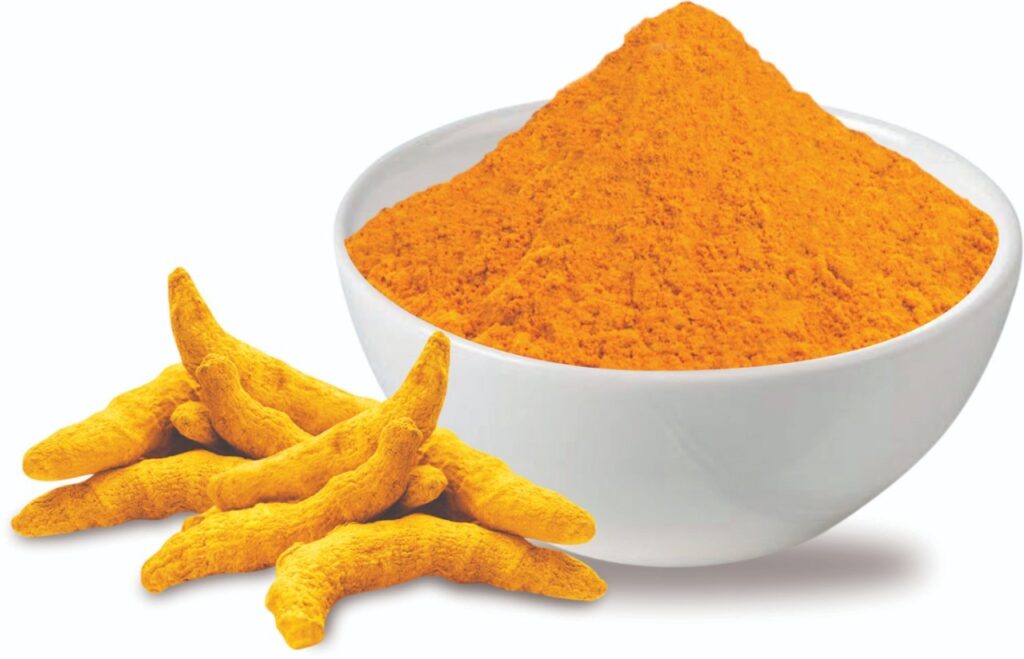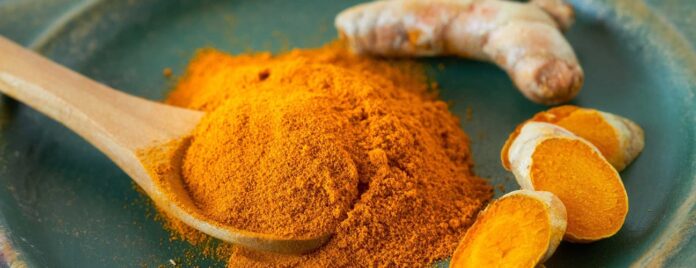
Introduction
Turmeric, scientifically known as Curcuma longa, is a golden-yellow spice derived from the rhizomes of a plant in the ginger family. Known as “Haldi” in Hindi, turmeric has been an essential ingredient in traditional Indian cuisine, medicine, and rituals for centuries. Renowned for its rich flavor, vibrant color, and medicinal properties, turmeric has become a staple in kitchens and health regimens worldwide.
Forms of Turmeric
Turmeric is available in various forms to suit diverse applications, from culinary to medicinal use:
- Fresh Turmeric Root
The unprocessed form of turmeric resembles ginger but is golden-orange inside. Fresh turmeric is used in cooking and juices and can be grated or blended for maximum potency. - Turmeric Powder
The dried and ground version of turmeric is widely used as a spice in cooking. It also serves as an ingredient in teas, face masks, and health supplements. - Turmeric Capsules/Tablets
Concentrated turmeric extracts are encapsulated for convenience, particularly for those seeking to incorporate it as a supplement without altering their diet. - Turmeric Tea
Available in pre-packed tea bags or made fresh by boiling turmeric root or powder in water, turmeric tea is a popular choice for its soothing properties. - Curcumin Extract
Curcumin is the active compound in turmeric responsible for its medicinal properties. Curcumin supplements often provide a more potent dose than consuming turmeric alone. - Turmeric Essential Oil
Extracted from turmeric rhizomes, the essential oil is used in aromatherapy and skincare for its antioxidant and anti-inflammatory benefits.
Benefits of Turmeric
1. Anti-Inflammatory Properties
Curcumin, the primary active compound in turmeric, has potent anti-inflammatory effects, helping reduce inflammation associated with chronic diseases like arthritis, heart disease, and inflammatory bowel diseases.
2. Antioxidant Powerhouse

Turmeric combats oxidative stress by neutralizing free radicals, which can prevent cellular damage and slow the aging process.
3. Supports Joint Health
Regular consumption of turmeric may alleviate symptoms of arthritis by reducing joint pain and stiffness.
4. Boosts Immunity
Turmeric enhances immune function due to its antibacterial, antiviral, and antifungal properties, helping the body ward off infections.
5. Improves Digestive Health
Turmeric stimulates bile production, aiding digestion and reducing symptoms of bloating, gas, and indigestion.
6. Heart Health
Curcumin may lower cholesterol levels, reduce blood pressure, and improve endothelial function, reducing the risk of heart disease.
7. Skin Benefits
Turmeric is a natural remedy for acne, scars, and uneven skin tone. Its antimicrobial and anti-inflammatory properties make it popular in face masks and creams.
8. Brain Health
Curcumin may improve memory and reduce the risk of neurodegenerative diseases like Alzheimer’s by promoting brain-derived neurotrophic factor (BDNF).
9. Potential Cancer Prevention
Preliminary research suggests that curcumin might inhibit the growth of cancer cells and reduce the spread of tumors.
Side Effects of Turmeric
While turmeric is generally safe for most people, excessive consumption or improper use can lead to side effects:

- Gastrointestinal Issues
High doses of turmeric may cause stomach upset, nausea, or diarrhea. - Allergic Reactions
Some individuals may experience skin rashes or allergic reactions when using turmeric topically or orally. - Iron Absorption Inhibition
Turmeric may interfere with the body’s ability to absorb iron, potentially worsening iron deficiency. - Interaction with Medications
Turmeric can interact with blood-thinning medications, antacids, and diabetes medications, altering their effectiveness. - Gallbladder Issues
People with gallstones or bile duct obstruction should avoid excessive turmeric, as it stimulates bile production. - Pregnancy and Breastfeeding
While small amounts of turmeric are safe, high doses may stimulate uterine contractions, posing a risk during pregnancy.
This Article is for Basic Information. Contact a professional doctor before using it.
HAKEEM KARAMAT ULLAH
+923090560000




